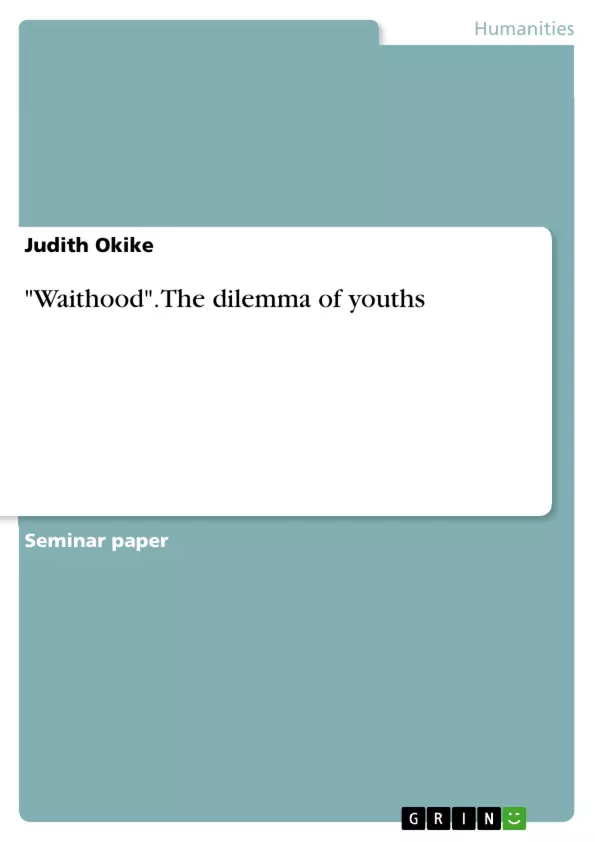African continent is saddled with youths who mostly are living in a state of “waithood,” which is a term referred to unemployed graduates who due to the unavailability of livelihood or jobs depends on their parents. This waithood is not only experienced by the African youths alone but is shared some number of young people in the developed world as well who are also struggling with challenges of unemployment and political exclusion. The said generation is progressively losing faith in the capability of its government to curb their dilemma, and thus they have no choice but to rebel against the status quo as seen in the incremental protest from the youth upheaval in Tunisia, the Arab Spring and the overthrowing of Senegalese Abdoulaye Wade and Campaore in Burkina Faso, Occupy Wall Street in the USA and in occupy Abuja in Nigeria by disgruntled youth and Los Indignados in Spain, depicting an era of young people clamoring for political change.
Inhaltsverzeichnis (Table of Contents)
- Introduction.
- Historical Background
- Methodology
- The Historical Background to Waithood
- Effects of waithood...
- Youths struggle in effecting Change
- Conclusions
- Recommendations...
- References....
Zielsetzung und Themenschwerpunkte (Objectives and Key Themes)
This paper aims to explore the link between the state of "Waithood" and youth's inclination towards social movements, particularly in Nigeria. The study seeks to understand the lived experiences of young university graduates and to highlight the connections between their situation and the rise of social movements.
- The concept of "Waithood" and its impact on young adults.
- The role of unemployment and political exclusion in fueling social movements.
- The specific experiences of Nigerian youth within the context of "Waithood."
- The impact of social movements on the socio-political landscape.
- Potential solutions and recommendations for addressing the challenges of "Waithood."
Zusammenfassung der Kapitel (Chapter Summaries)
The paper is divided into two chapters. Chapter one delves into the concept of "Waithood" and its historical context, utilizing a qualitative research approach. It explores the methodology employed and examines the historical background of "Waithood." Chapter two focuses on the effects of "Waithood" on young adults, analyzing the challenges and outcomes of their dissatisfaction. It examines how their experiences contribute to the emergence of social movements, aiming to provide insights into the underlying causes and potential solutions.
Schlüsselwörter (Keywords)
This paper explores the concept of "Waithood," examining its impact on young adults, particularly in Nigeria. The study focuses on the role of unemployment, political exclusion, and social movements as key factors contributing to the precarious situation of young graduates. It investigates the social and political implications of "Waithood," aiming to understand the complexities of this phenomenon and its potential solutions.
- Citar trabajo
- Judith Okike (Autor), 2021, "Waithood". The dilemma of youths, Múnich, GRIN Verlag, https://www.grin.com/document/1457906



